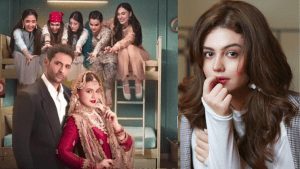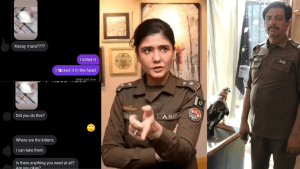The rishta culture in our society has never centered around encouraging women to be happy or independent after their marriages, but evaluated them on how willing they are to cutting down parts of themselves to fit their husbands needs. There isn’t a woman in our familiar social circle who who has not been spared from this sad truth because since our childhoods, women are critiqued on their skin tones, how much they eat or even what subjects they choose to study in their schools, nothing we do or own belongs to us but to some invisible man destined to become our husband in the future!
Twitter users decided to shed some light on the various ways they have encountered the disgusting comments and sexist shaming associated with the rishta culture either in their personal lives or among social circles. One Twitter user started this conversation by sharing how a rishta aunty had shamed a girl for her short hair:
“My hate for rishta culture increased tenfold today after I learnt that one of the rishta ladies asked a girl, “Baal khud chotay rakhay hein ya barhtay nahi hein?” How could someone be so small minded?”
My hate for rishta culture increased tenfold today after I learnt that one of the rishta ladies asked a girl, “Baal khud chotay rakhay hein ya barhtay nahi hein?”
How could someone be so small minded?
— m (@meemelif) June 6, 2021
This soon began into a conversation with many women coming forward to share the horrific experiences of rishta auntie who have shamed them for the most minute things, like seriously women are not objects to be gazed and disected! There is nothing wrong with wanting to marry a good man, but no woman should be told that she must shred parts of herself just to be accepted by a man!
Pakistani author Mehr Husayn shared her experience of when a rishta aunty told her to get eye surgery as no man would want to marry a woman who wears glasses
Potential rishta -one mum of Perfect Boy actually asked me if I would consider getting eye laser surgery done because y’know glasses meant Defective Goods.
— MehrHusayn (@mfhusayn) June 7, 2021
Colorism is one of the most horrifying practices of rishta culture, as many women in the comments share experiences of being rejected or ridiculed publicly by aunties simply because they weren’t fair skinned.
A rishta auntie asked my friend: ” Beta Rang Naturally gora hai yan creams sy huwa hai ? ”
How could you? https://t.co/jphVqDYwfM— Jannat~❤️ (@Jnntiii) June 7, 2021
Another common trait of the toxic rishta culture of Pakistan that women brought up in the comments were how often they were shamed for not having children at a certain age, or not having children after marriage. This twitter user revealed that she was suffering from fertility issues that caused her to have a miscarriage, yet it did not stop a family relative to openly question her on public events about why she couldn’t have children. Women’s bodies are not machines to magically produce children whenever they are demanded to! And no woman is “incomplete” because she has chosen not to have children immediately after her marriage.
It’s not just rishta culture, it’s a women-shaming culture. I was at a funeral and a close relative, in front of everyone, asked me loudly, “Bachay ho rahay nahi hain ya kiye Nahi”. I came home cried a lot that night and had a miscarriage just a few weeks after that https://t.co/CsTOXt2rk3
— Abeer (@DMisHaram) June 6, 2021










